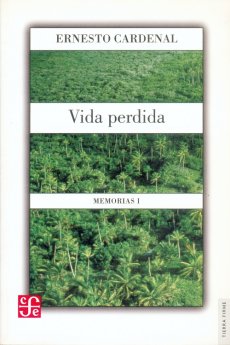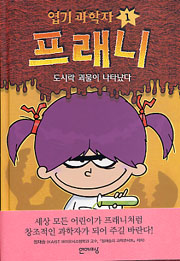 I found an unexpected treasure of a book yesterday. A book I’d meant to buy, once, some time ago, but then upon coming to Korea, I had postponed it indefinitely and forgotten. In the several shelves of Spanish language books at Kyobo, yesterday, there was sitting the first volume of Ernesto Cardenal‘s autobiography, Vida Perdida.
I found an unexpected treasure of a book yesterday. A book I’d meant to buy, once, some time ago, but then upon coming to Korea, I had postponed it indefinitely and forgotten. In the several shelves of Spanish language books at Kyobo, yesterday, there was sitting the first volume of Ernesto Cardenal‘s autobiography, Vida Perdida.
I was profoundly affected by the work of another Nicaraguan author, 20-something years ago: La montaña es algo más que una inmensa estepa verde, by Omar Cabezas. One of my “top 50” books, I would guess – though that list is always changing, isn’t it? That was an autobiographical bildungsroman, covering Cabezas’ life as a Sandinista rebel in the epoch before the Nicaraguan revolution of 79 and the overthrow of Somoza.
So…
I had always struggled to appreciate the poetry of Cardenal (the poet-politician-priest, who was also a Sandinista, and in fact was later a minister in Ortega’s revolutionary government), and I have thought I would get more out of his prose, but had never had the opportunity to read it.
And there it was, published in Mexico, waiting forlornly to be purchased for only 22,000 원, in a Seoul bookstore. So, of course, I bought it. Vida Perdida, por Ernesto Cardenal. And started reading it. It begins, not chronologially, but instead with his departure for a Trappist Monastery in Kentucky, having decided to become a priest. I’d forgotten about that – he went off to the same monastery that hosted Thomas Merton for so long. Such a divergent life from Merton’s, though, despite the latter’s mentorship.
 In other news, I finished the drama Delightful Girl.
In other news, I finished the drama Delightful Girl.
Check out the girl with purple hair. A kid sat next to me on the subway and was reading this book, 프래니 (peuraeni = Frannie), about a Mad Scientist Girl. I remembered the title, I and navered it when I got home – it’s a translation of an English-language children’s book by Jim Benton, but the illustrations looked so extremely wonderful and entertaining. Perhaps next time I hit a bookstore, I should buy this book and use it to try to work on my Korean some more – a children’s book would be about the right level, right?
-Notes for Korean-
context: Now I’ve started watching another drama, called 풀하우스 (pulhauseu=full house). I find the attribution of its “hanja” name (according to the English wikipedia article) confusing:
浪漫满屋…
lemme try to analyze this:
[1浪][2漫][3满][4屋]
=[1랑][2만][3not in naver’s online hanja dictionary, but I found it here:만][4옥]
=[1물결][2흩어질][3그득][4집]
=[1?wave][2?scatter][3full][4house]
Is this truly a “hanja”? Or is it simply a Chinese name for the show? The proper Korean name of the drama is a Konglish term, and Konglishemes don’t have matching hanja, do they? I’ll be the first to admit, my comprehension of the niceties of the hanja system is next to nil.
context: dictionaryland and websites.
목록(目錄)=catalog, inventory
구동사=phrasal verb
명사=noun
형용(形容)=form, shape, appearance, description, metaphor
형용사=adjective
미리보기=preview (lit advance example)
다시보기=(lit again example)=?review?
가르치다=teach (I should know this)
말씀=language, talk
context: thinking about what’s best.
최고=superlative, best
짱=best (slang. perhaps mostly used by children–but don’t forget what you saw Ella and Stacey writing on the wall at school, that time) (…a site for korean slang info)
context: reading the script for episode 3 of 풀하우스, I’m seeing all kinds of reduplication words, which seem common and are interesting.
쓱쓱=easily, smoothly…
툭툭 치고=tapping…
씩씩=?smiling at each other? not sure what this is
잘 있어=take care (jarisseo=be well)
수목=tree
알았지?=understood? got it? (This was exciting for me to understand, as I parsed it simply upon hearing it, without having seen the form in writing before… and then I was able to type it in–correctly spelled–and confirm that I’d indeed understood it).
context: other random curiosities
문어=octopus
문어=literary expression
…wow – nice pair of homophones. far out!
고기=meat, fish (and could I forget this? It’s one of the few words I thought I’d retained from my first time in Korea, in 1991)
글월=letter, note, epistle
동물=animal, brute, creature
낙지=common octopus
발=foot, paw, arm
![]()
